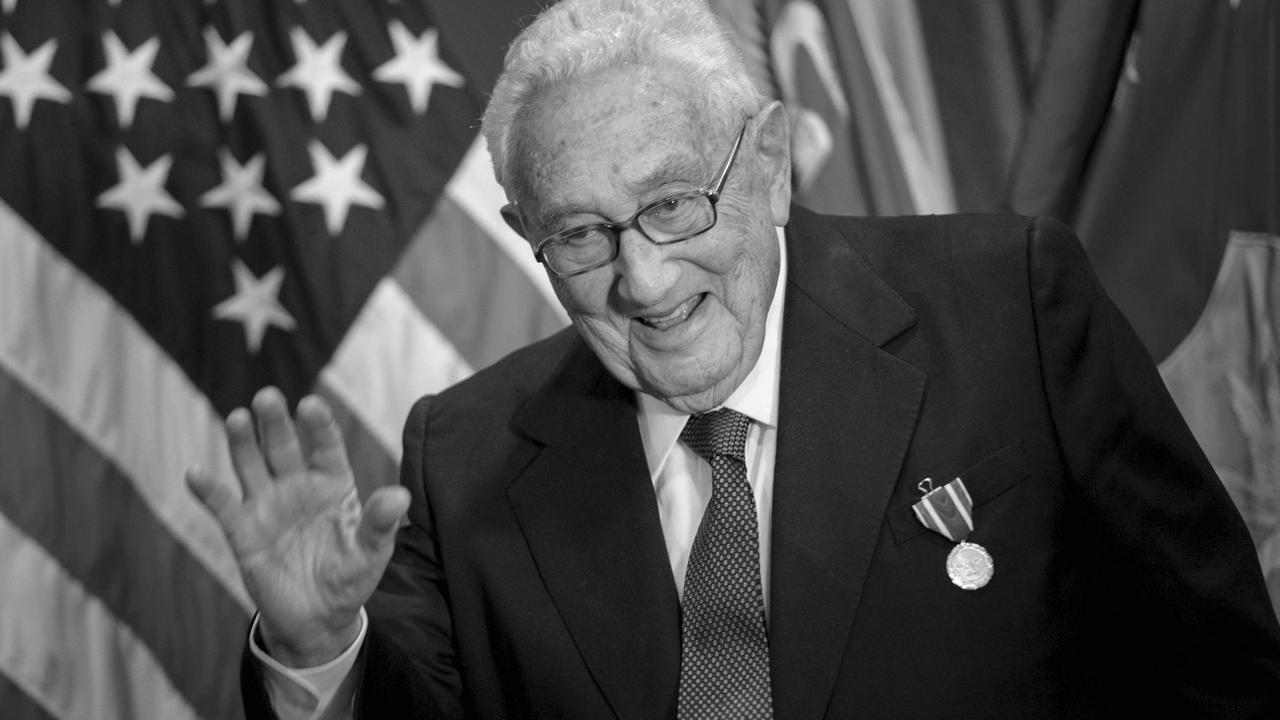This is from the leading public-service news program. They are considered to be very objective and reporting without bias by large groups in Germany.
The former US Secretary of State has died at the age of 100. The german-born nobel peace prize winner had a decisive impact on US foreign policy in the 1970s under then President Nixon and Ford.
The former US Secretary of State Henry Kissinger is dead. The controversial Nobel peace prize winner and diplomat died on Wednesday at the age of 100 in his home in Connecticut, said the consultancy firm he founded, Kissinger Associates.
As a security advisor and foreign minister to US Presidents Richard Nixon and Gerald Ford the republican significantly shaped US foreign policy. His efforts led to a opening of diplomatic relations with China, to arms regulation negotiations between the USA and the Soviet Union, to an improvement of the relationships between Israel and its arab neighbours and to the Paris Peace Accords with North Vietnam.
Born in Germany
Heinz Alfred Kissinger was born into a Jewish family in Fürth, Franconia, on May 27, 1923; his father worked as a teacher at a local high school. In 1938 he fled Nazi Germany with his family. The Kissingers eventually settled in Manhattan, where Heinz became Henry.
After a career in science, the political scientist became national security advisor in the White House and later US Secretary of State in 1968 when the Republican Nixon was elected president.
Nobel Peace Prize for contribution to the peace treaty with Vietnam
In the struggle for a peace solution to the Middle Ease conflict, Kissinger was the first to practice so-called “shuttle diplomacy”. He tried to bring the USA and China closer together through secret channels.
Kissinger also initiated talks on the Treaty of Paris in January 1973, which enabled the United States to withdraw from the deadly and costly Vietnam War. Two years later, Saigon fell to the communist Viet Cong. Kissinger received the Nobel Peace Prize for the ceasefire agreement with North Vietnam.
Much-criticized pioneer of realpolitik
Kissinger also advocated a course of detente towards the Soviet Union. During the Watergate scandal involving eavesdropping on political opponents under Nixon, Kissinger’s influence grew.
He was considered an advocate of realpolitik, according to which the means of diplomacy should be used to achieve pragmatic goals and not primarily to advance noble ideals. His advocates credited him with serving American interests with his approach. Critics, however, accused him of pursuing diplomacy based on power politics, which ran counter to democratic values. His support of anti-communist dictatorships, especially in Latin America, also brought him a lot of criticism.
Publicly active until the end
Ford called Kissinger a “super-secretary of state,” but also pointed to his sharpness and self-assurance, which critics described as paranoia and egotism. Ford said, “Henry never made a mistake in his mind.”
Kissinger remained active after his 100th birthday, attending White House meetings, publishing a book on leadership and testifying before a Senate committee about the nuclear threat from North Korea. In July 2023 he made a surprise visit to Chinese President Xi Jinping.
Just a vague “there’s been some criticism” from the oh-so independent public broadcasting service, sure. This is so close to historical revisionism, it’s nuts. Mentioning he was instrumental in the Vietnam peace talks but not mentioning he sabotaged them earlier to engineer a domestic election, oops just a little oversight I’m sure.
Absolutely disgusting, I didn’t expect anything else
I hate it here.



